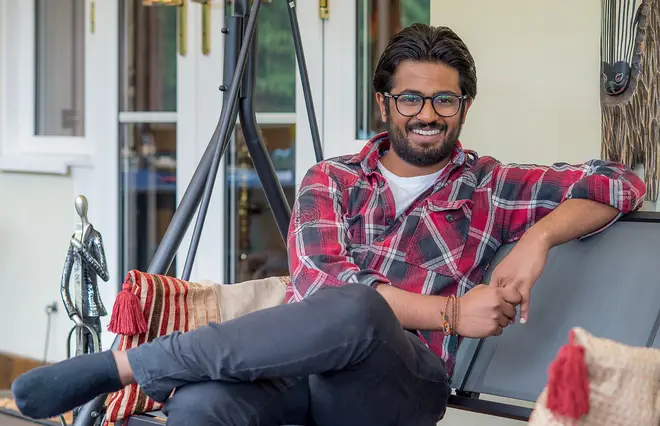
Matt Frei 10am - 12pm
11 June 2020, 07:58

A young doctor who was on life support after contracting Covid-19 has warned that even those who were previously fit and healthy can face a long road to recovery.
Dr Shanath Ramachandran, a 26-year-old trainee doctor first began feeling unwell on April 5 following a busy week treating patients, and was hospitalised himself a week later.
The doctor, who works at Leighton Hospital in Crewe, said he knew about the risks from Covid-19, but felt reassured because of his age and the fact he had no underlying health conditions.
In an interview with the journal Anaesthesia Reports, he said: "At the time I fell ill, I was unaware of the link between members of the black, Asian, and minority ethnic (BAME) community and the risk of becoming seriously unwell with Covid-19.
"This directly affects me, as I am of South Asian descent with both my parents born in Sri Lanka."
Dr Ramachandran said infection policy at the time said surgical facemasks did not need to be worn when treating patients who were not confirmed to have coronavirus.

One person households can form support bubble with one other household
His first symptoms included fatigue, nausea and vomiting - with fever, muscle pain and breathlessness developing over the course of a week.
Aware he was becoming seriously ill, he called an ambulance on April 12 and was transferred to Wythenshawe Hospital in Manchester.
Dr Ramachandran underwent blood tests and scans for suspected Covid-19, and began treatment on intravenous antibiotics and fluids.
However, within 12 hours he had significantly deteriorated despite receiving oxygen, and was transferred to intensive care and put on a ventilator.
"It had never previously occurred to me that I might deteriorate to this state; hence this news caused much anxiety to myself and my family," he said.
"The brief telephone conversation with my family, including a forced positive message, was my last clear memory prior to intubation."

Keir Starmer questions Boris Johnson's coronavirus strategy
Dr Ramachandran remained on the ventilator for six days, and spent two further days on the critical care unit receiving oxygen, physiotherapy and ongoing monitoring.
He also underwent further physiotherapy and speech therapy before being discharged, after which he spent six weeks recovering at his parents' house.
Dr Ramachandran said: "My mobility was much less than before, and I had lost between 10-15kg whilst in hospital.
"My voice was incredibly hoarse and quiet, and I was occasionally struggling to swallow fluids."
Over the next six weeks, he rested and slowly built himself up from only being able to walk 100m to running three to four miles a day now.
Dr Ramachandran said: "My recovery has been a slow, arduous and often frustrating process.
Listen & subscribe: Global Player | Apple Podcasts | Google Podcasts | Spotify
"I am much better now, however there is still some way to go; there are often days when I get tired very quickly with basic tasks.
"I am struggling with sleep and am yet to put on some of the muscle weight which I lost whilst in hospital. I've been advised that some of this can take up to a year to get back to normal."
Dr Ramachandran said his anxiety was running high as one of his patients - somebody younger than himself - had died from Covid-19 just before he himself fell ill.
He added: "Being admitted to critical care was an entirely new experience for me.
"As well as dealing with the challenges of being severely unwell, I had to deal with the added issue of being a doctor, who had treated numerous patients with the same illness prior to admission.
"When the country initially went into lockdown and the NHS was gearing up for the peak, I was aware that there was a high likelihood of catching Covid-19.
"However, I did not feel as though this would affect me severely as I was normally fit and well and have never smoked.
"As this case and others prove, however, this disease can affect anybody regardless of how healthy they previously were; further, the consequences of this infection can be stark."
Dr Ramachandran said he was still working through "a myriad of mental and physical health issues", adding: "It is vital the public continue to be wary of this potentially debilitating disease."